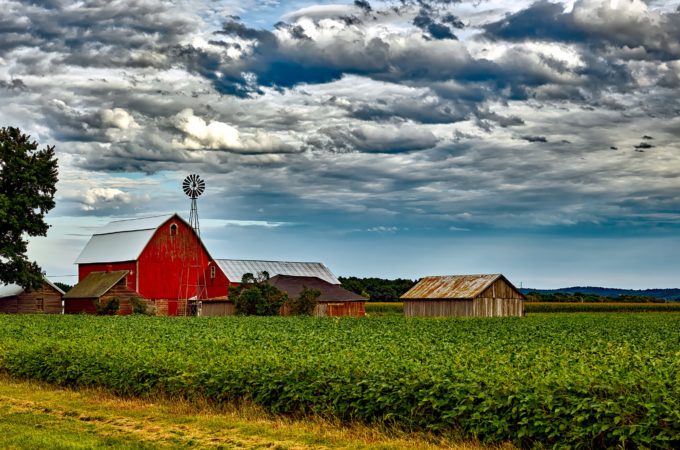Seeing that God owns the patent for agriculture, humans do well to heed His directions for farming!
According to God’s mandate in Deuteronomy 8:3, people shall not live by bread alone, but by every word that comes from God. Thus, we are to live by bread, but we are also to live by the Word of God. When these two things are combined for the agriculturist in an intentional way, it leads to all kinds of exciting opportunities, discoveries, and adventures. When asked what prompted him to study the lowly peanut, George Washington Carver said, “Why, I just took a handful of peanuts and looked at them. ‘Great Creator,’ I said, ‘Why did you make the peanut? Why?’ With such knowledge as I had of chemistry and physics I set to work to take the peanut apart”.
‘Great Creator,’ I said, ‘Why did you make the peanut? Why?’ With such knowledge as I had of chemistry and physics I set to work to take the peanut apart”.
Carver understood that agriculture and God’s revelation through His Word go hand in hand. In fact, I believe that his words and actions continue to challenge us today to examine the way that we as Christians do agriculture. Is any of the care that is mentioned in the Scriptures for both land and animals exhibited on the farms of Christians throughout the world today? Or is a Christian farm today indistinguishable from that of a non-Christian? In addition to this area of stewardship, there is a clear Biblical mandate given to people to develop the creation. It is the God-given role of people involved in agriculture to be fruitful and to produce bounty with the resources that God has entrusted to them. Without bounty, there is an ever-decreasing resource base to steward. Conversely, without stewardship, the bounty is short-lived and eventually exhausted. Both need to happen simultaneously in order for God’s creation to unfold according to His intentions.
Guiding principles for biblical agriculture
The following principles are an attempt to help people involved in agriculture around the world to better understand the role that they are called to play in bringing God’s Word and His kingdom to bear on the land, animals, and neighbors that have been entrusted to their care.
1 – Earth Ownership Principle: The earth is the Lord’s and all that it contains.
2 – First Farmer Principle: God is the First Farmer, the author and initiator of agriculture.
3 – First Farmer Relationship Principle: Those who practice agriculture need to have a good relationship with the First Farmer.
4 – High Calling Principle: Those who practice agriculture have a high calling from God, which is full of dignity and purpose.
5 – Sacred Work Principle: Those who practice agriculture should strive to honor and glorify God through their work.
6 – Dominion Principle: Farmers are commanded by God to have dominion over the creation.
7 – Bounty Principle: Farmers are commanded by God to be fruitful and produce bounty from the land and animals that God has entrusted to them.
8 – Stewardship Principle: Farmers are commanded by God to steward the land, natural resources, farm animals and crops that He has placed in their care.
9 – Diversity Principle: God delights in the diversity of his creation and farmers should strive to encourage and maintain the diversity that He created.
10 – Neighborly Love Principle: Those who practice agriculture should treat their neighbors as they would wish to be treated themselves.
The application of these principles will not be easy. That said, the apostle Paul’s words ring true for us when he commands us to not be conformed to this world, but to be transformed by the renewing of our minds, that we may prove what is the good, acceptable and perfect will of God.
- David Evans
See also these articles at Disciple Nations Alliance.






